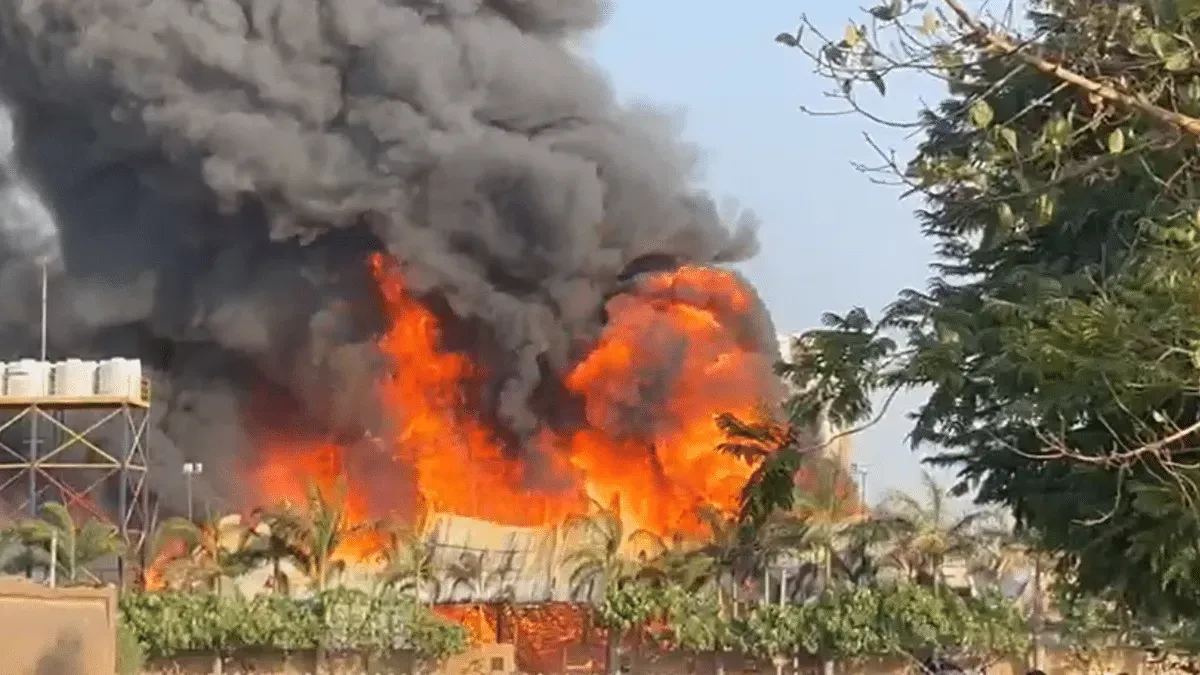Introduction
In a significant ruling, the Gujarat High Court has ordered an inquiry into the devastating fire at a game zone in Rajkot, which resulted in the tragic deaths of three girls. The court's directive focuses on the alleged inaction and negligence of municipal officers, raising critical questions about accountability and safety regulations in public spaces. This judgment underscores the judiciary's role in addressing systemic failures and enforcing compliance with safety norms.
Background of the Incident
The fire incident occurred on January 1, 2024, at the 'Takshashila Arcade' in Rajkot, Gujarat, where a game zone was engulfed in flames, leading to the deaths of three young girls and injuries to several others. The tragedy highlighted severe lapses in safety measures and regulatory compliance. Initial investigations revealed that the game zone lacked adequate fire safety equipment and emergency exits, which significantly contributed to the casualties.
Court’s Observations on Municipal Officers’ Role
The Gujarat High Court, while hearing a suo motu (on its own motion) public interest litigation, observed gross negligence on the part of municipal officers. The court noted that despite clear regulations mandating fire safety measures in public buildings, the municipal authorities failed to enforce these norms effectively. The court's observations pointed to a broader issue of systemic laxity in regulatory enforcement, which jeopardizes public safety.
Inquiry Mandate and Expected Outcomes
The High Court has directed a comprehensive inquiry into the actions and inactions of the municipal officers responsible for overseeing safety compliance at the Takshashila Arcade. The inquiry aims to determine the extent of negligence and identify specific lapses that led to the tragedy. The court emphasized the need for accountability and stated that those found guilty of dereliction of duty should face stringent legal consequences.
This inquiry is expected to uncover the underlying reasons for the failure to enforce fire safety regulations, potentially leading to significant administrative and legal reforms. It also aims to serve as a deterrent against future lapses by holding public officials accountable for their responsibilities.
Legal and Administrative Implications
The court's directive has profound legal and administrative implications. It reinforces the principle that public officials are accountable for ensuring compliance with safety regulations. The ruling may prompt a thorough review of fire safety norms and their enforcement across Gujarat, leading to stricter implementation and monitoring mechanisms.
Moreover, this case sets a precedent for other states, highlighting the judiciary's proactive role in safeguarding public interest. It underscores the importance of adhering to safety standards and the potential consequences of neglecting these critical regulations.
Broader Impact on Public Safety Regulations
The High Court’s ruling is likely to have a broader impact on public safety regulations in India. By holding municipal officers accountable, the judgment sends a clear message about the non-negotiable nature of safety compliance in public spaces. This could lead to heightened scrutiny and more rigorous enforcement of safety norms across various sectors, including commercial establishments, educational institutions, and residential complexes.
The case also emphasizes the need for regular audits and inspections to ensure that safety measures are not only implemented but also maintained over time. This proactive approach can significantly reduce the risk of similar tragedies in the future.
Judicial Activism and Public Interest
The Gujarat High Court’s intervention in this case exemplifies judicial activism aimed at protecting public interest. By taking suo motu cognizance of the incident, the court demonstrated its commitment to addressing systemic issues that affect public safety. This proactive stance is crucial in contexts where regulatory bodies may be complacent or overwhelmed.
Judicial activism in such cases ensures that victims receive justice and that there is accountability for failures that lead to loss of life and property. It also reassures the public that the judiciary is vigilant and responsive to issues of public concern.
Preventive Measures and Future Directions
In light of the court’s directives, it is imperative for municipal authorities and other regulatory bodies to implement robust preventive measures. These should include regular training for officials on safety regulations, periodic reviews of compliance protocols, and the establishment of a transparent accountability framework.
Public awareness campaigns about safety measures and emergency procedures can also play a vital role in preventing similar incidents. Educating the public about their rights and responsibilities regarding safety can empower communities to demand better compliance from authorities and service providers.
Conclusion
The Gujarat High Court’s order for an inquiry into the Rajkot game zone fire and the inaction of municipal officers is a pivotal moment in the enforcement of public safety regulations. It underscores the critical need for accountability and diligent enforcement of safety norms to prevent such tragedies. The ruling not only addresses the immediate issue of negligence but also sets the stage for broader reforms in safety regulations and their enforcement.
By mandating this inquiry, the court has highlighted the importance of proactive governance and the role of the judiciary in upholding public interest. This decision is a reminder that the safety and well-being of citizens are paramount and that systemic failures must be addressed with urgency and rigor. The outcomes of this inquiry will likely shape the future of public safety protocols, not only in Gujarat but across India, ensuring that such incidents are less likely to occur in the future.










0 Comments
Thank you for your response. It will help us to improve in the future.